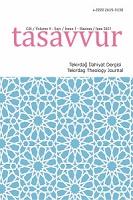Mezhep Ashâbına Ait Görüşlerin Temel Bir Argüman Olarak Kullanımı: Hanefîlerin Benimsediği Yönteme Dair Bir İzah Denemesi
The Use of the Opinions of the Madhab Scholars as a Basic Argument: An Explanatory Essay on the Method Adopted by the Hanafīs
Author(s): Kamil YelekSubject(s): Islam studies, Methodology and research technology, Sociology of Law, Sharia Law
Published by: Tekirdağ Namık Kemal Üniversitesi İlahiyat Fakültesi
Keywords: Islamic Law; Ḥanafī School; The Madhab Scholar; Nass; Conflict/Teāruz; Preference;
Summary/Abstract: Ḥanafī scholars resorted to various methods such as abrogation (naskh), specification (takhṣīṣ), preference, (tarjīh) interpretation (taʾwīl) in order to eliminate the incompatibility between the views of the founding authorities of the madhab (ashāb) and the nass (verses and hadiths). According to the famous narration attributed to Abu’l-Hasan al-Karkhī (d. 340/952), one of the Iraqī Ḥanafī scholars, it is thought that the nass contradicting the views of the madhhab scholars are abrogated, or that other evidence is preferred over them, but it is more appropriate to reconcile and interpret them. However, this approach adopted by the Hanafīs has brought some criticism and accusations that the views of the madhab scholars are prioritized over the nass or that these were ignored in the face of their views. On the other hand, the discourse that the views of the madhab scholars should be preferred in case of incompatibility between the views of theirs and the nass, seems problematic and in need of explanation at first glance. Due to the reason mentioned, these statements, which reveal the general attitude of Ḥanafīs, need to be explained theoretically. In this study, firstly, the Hanafīs’ justifications for adopting this approach are discussed, and then it is seen that this does not mean “the nass is ignored or the views of the jurists are prioritized” as it is claimed.
Journal: Tasavvur Tekirdağ İlahiyat Dergisi
- Issue Year: 9/2023
- Issue No: 1
- Page Range: 359-385
- Page Count: 27
- Language: Turkish

